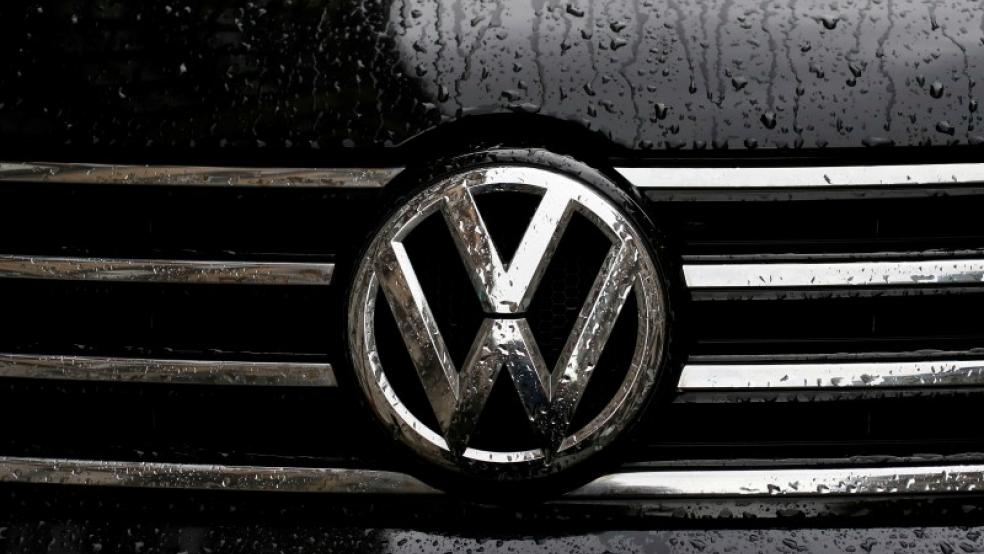The revelation that Volkswagen has equipped many of its diesel-engine cars with software that evades U.S. clean air standards and testing has rocked the auto industry. The German car manufacturer will likely face billions in fines.
Gina McCarthy, administrator of the Environmental Protection Agency, which helped expose the scandal, warned on Tuesday that the scandal might eventually extend to other U.S. and European manufacturers of high-performance diesel-engine cars and trucks. “We have to be concerned about whether or not there are other defeat devices out there that we have not been able to detect,” McCarthy said during an energy and climate policy breakfast hosted by The Wall Street Journal and the National Association of Manufacturers.
Related: Volkswagen cuts guidance, sets aside 6.5 billion euro for emission costs
Volkswagen announced on Sunday that it was suspending the sales of cars in the United States that were secretly programed to reduce nitrous oxide emissions so they could meet government standards while undergoing routine emissions tests. The cars were spewing up to 40 times more emissions on the open road.
The company’s chief executive, Martin Winterkorn, apologized and officials announced the company would halt the sale of 2015 and 2016 Volkswagen and Audi models that are equipped with four-cylinder turbo diesel engines that have been touted as clean burning. Volkswagen AG said today that 11 million vehicles were equipped with the software and that it will cost the company at least $7.3 billion to recall and revamp the cars, according to Bloomberg.
Yet the damning evidence against VW turned up by EPA officials with the help of a non-profit organization called the International Council on Clean Transportation suggested that there may be other car manufacturers using the devious software to circumvent government clean air standards. The ICCT reportedly stumbled across the fraud while comparing “real world performance” of diesel-powered cars in the U.S. and Europe.
Volkswagen admitted its wrongdoing only after the EPA – exercising broad powers under the Clean Air Act – threatened to withhold its approval of the company’s 2016 Volkswagen and Audi diesel models, according to The New York Times.
Related: Volkswagen steering committee to meet on emissions scandal: sources
“I’m really proud of the work we did to get to where we are now,” McCarthy said, noting that the deceptions had been very difficult to detect. “I’m pleased Volkswagen is taking such an aggressive stance on the problem and attacking it. But we are not going to sit … around and worry about whether or not there are other devices. We’re going to find it. So right now we’re upping our game in terms of going out and doing the work to take a look at what we need to do with other vehicles.”
VW’s admission that it had built at least 482,000 diesels for the U.S. market equipped with the deceptive software has sent the company’s stock tumbling by 38 percent, created a public relations nightmare, and opened the company to the potential for record government fines.
As The New York Times noted, while the National Highway Traffic Safety Administration can hit car manufacturers with a maximum of $35 million for a safety violation, Volkswagen under the federal Clean Air Act could be fined as much as $37,500 for each vehicle recalled. If the government throws the book at VW, the fines could total as much as $18 billion.
The deception could have been done for any number of reasons, according to some car experts, including improving engine performance and torque on the open road that may have been impossible to achieve with engines designed to severely limit emissions.
Related: GM to pay $900 million to end U.S. criminal ignition switch probe
The blatant cheating might never have been revealed if it hadn’t been for the ICCT, an organization partially staffed by former EPA employees. The organization had been testing the performance of “clean” diesel cars in Europe two years ago and was unimpressed by the results. Curious about how European cars stacked up against diesel-powered vehicles in the U.S. -- where the emission standards are stricter -- the group began road testing emissions and discovered VW’s fraud, according to media reports.
The ICCT earlier this month issued a study of 32 European diesel cars that compared emissions from open road driving with those from more restricted testing conditions, according to Yahoo! Autos. Although the diesel powered cars passed the regulated tests, almost all of them emitted far more pollution during “real-world” driving – with Volvos, Renaults and Hyundais posing the most serious problems.
“We’re talking about an international issue,” McCarthy said today.





